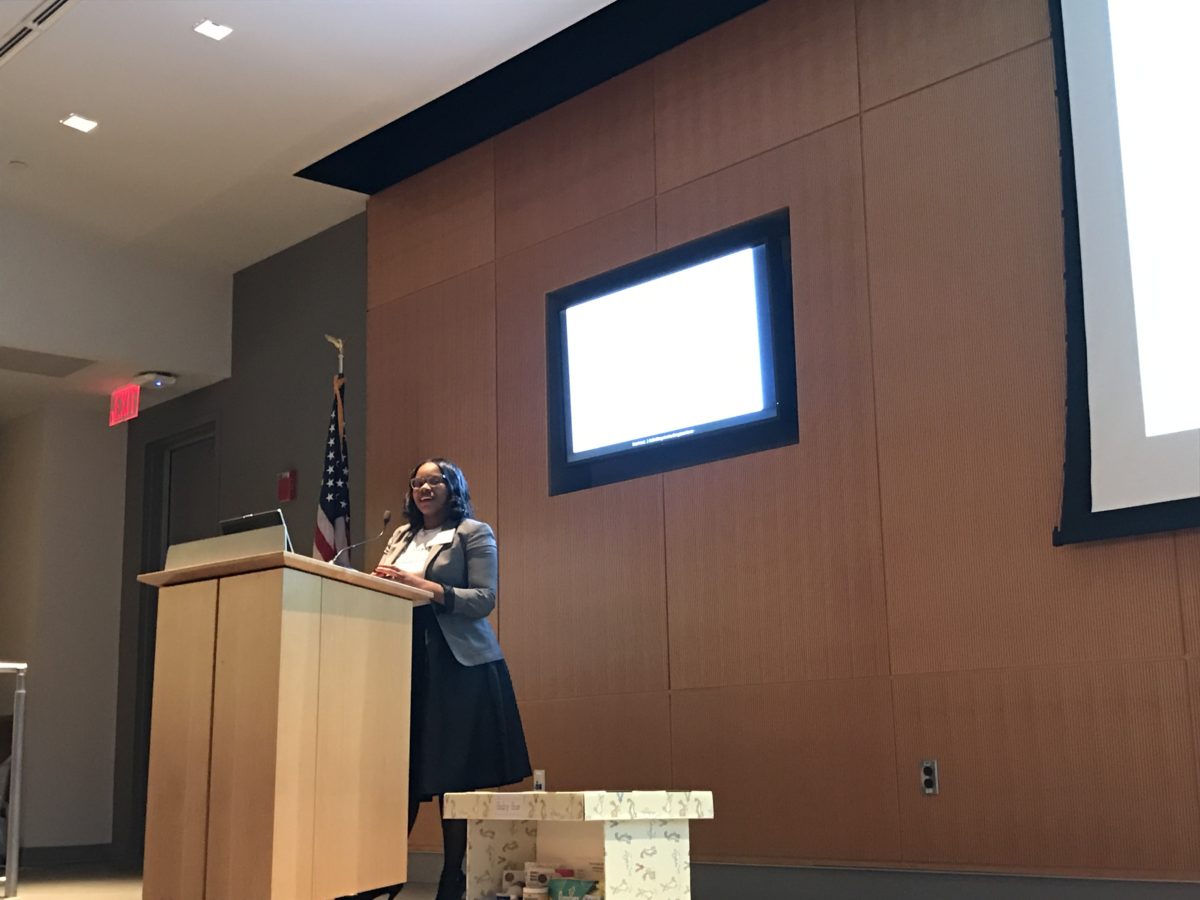Shantell Roberts wants babies to sleep safely.
Sudden Infant Death Syndrome has been a big issue in Baltimore, where the B’More for Health Babies program has been credited with a downtick in sleep-related infant deaths since being implemented in 2009.
But it continues to be an issue. Earlier this month, Health Commissioner Leana Wen said six babies have died in their sleep so far this year. Roberts sees that firsthand on home visits she conducts with the health department’s Safe Sleep campaign.
She wants to spread awareness to more of Baltimore, and throughout the state. Roberts’ solution is the Portable Alternative Crib. Drawing on similar concepts that came out of Temple University and were implemented in New Jersey, the PAC is a box with a mattress at the bottom, providing a safe sleeping space. It also has supplies such as diapers and blankets.
They’re offered through her nonprofit Touching Young Lives.
“For each [PAC] that is sold, one is afforded to a family who is in need,” Roberts said.
At the Johns Hopkins Social Innovation Lab’s finale on Tuesday night, Roberts pitched the box, and announced a goal to distribute 100 of them.
She was also voted by the other nine social venture teams in the cohort to win $25,000.
https://twitter.com/SIL_Baltimore/status/857210463670738944
Roberts was the first recipient of the additional funding for the Social Innovation Lab. To determine who won, Social Innovation Lab Director Darius Graham said the social enterprise accelerator used a peer-review process. Drawing influence from Village Capital, the teams were asked to rank each other based on criteria including their ability to communicate the company’s vision and mission, as well as progress during the six-month program.
Taken together, the ventures demonstrated that tech was part — but often not all — of the solution to finding creative ways to solve problems.
Jenna Shaw created The Whole Teacher, a platform that looks to use data to provide health and wellness for teachers. With Intelehealth, Neha Goel is looking to expand healthcare access in remote areas. She’s using low-bandwidth internet that could be as slow as dial-up, since that is what is needed. With Squadz, Nikhil Panu has an app to to help people organize games at rec centers.
Like Roberts, many of the founders who pitched started off with some of the city’s toughest issues. Project Charmify’s Elyse Oliver is looking to take on the issue of blight by reactivating spaces, an effort she’s begun in Old Town. Bent Carrot’s Mark Courser is looking to take on food deserts with a kitchen kit and monthly community dinner.
We’ll be checking in with members of the cohort for profiles in the coming weeks.
Startup keeping sleeping babies safe wins $25K from JHU Social Innovation Lab







